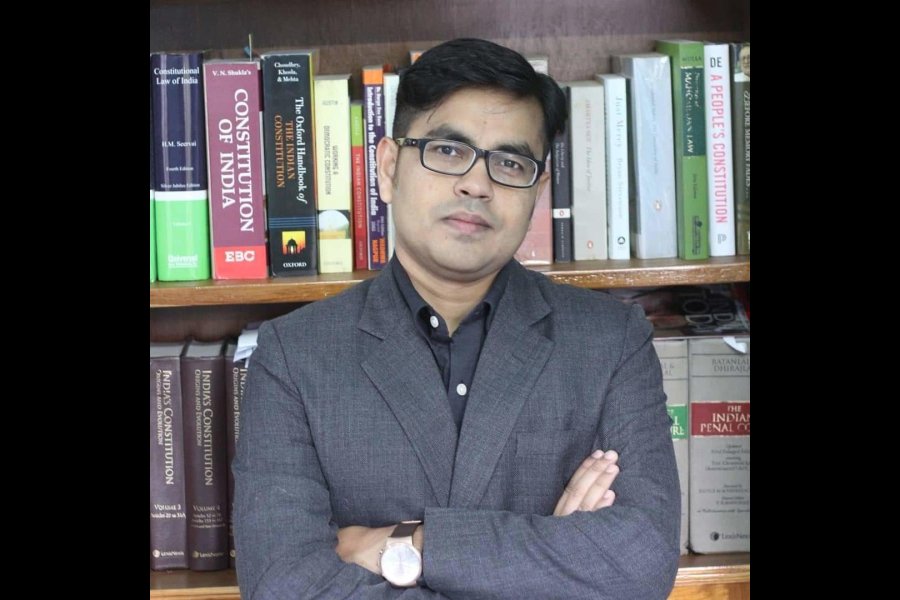Dignity of individual is often the ultimate casualty in any election campaign in India, protecting dignity of individual rarely finds its way to any party’s manifesto. This time the Opposition has succeeded in making the 2024 general elections about protecting the Constitution, this comes after a decade of BJP’s absolute disregard for constitutional values and institutions.
As the opposition’s campaign to save the Constitution started getting overwhelming support, the Prime Minister issued a statement on April 12 in Rajasthan. He said, “even if Babasaheb Ambedkar himself comes, he cannot abolish the Constitution”. But his words were proven to be hollow very soon.
Addressing a rally on April 22, Modi said: “Earlier, when they (the Congress) were in power, they had said Muslims have the first right to the wealth of the nation. This means they will distribute this wealth to those who have more children, to infiltrators. Should your hard-earned money be given to infiltrators? Do you agree to this?”
He went on with his diatribe. “Congress’s manifesto says they will take stock of the gold mothers and daughters have and will distribute that wealth. Manmohan Singh’s government had said Muslims have the first right to wealth.”
Subsequently, several BJP leaders and members of the Modi cabinet echoed him.
It has already been fact-checked that what Modi stated does not have an iota of truth.
When the Constitution was framed, the founding fathers envisaged a country where everyone has the right to live with dignity — in fact, this was supreme in their mind. Calling 14 per cent of India’s population ghuspethi is the worst form of betrayal of the promises made in the Indian Constitution, by none other than the Prime Minister of India.
The Preamble to the Constitution declares to secure for all its citizens, “Fraternity assuring the dignity of individuals.”
To fulfil this dream, the Constitution guarantees scores of rights under the Fundamental Rights Chapter. The Congress manifesto, apart from promising to defend the Constitution, also promises social justice and to defend the rights of all vulnerable groups — including that of minorities. It says, “We will respect and uphold the fundamental right to practice one’s faith and the rights guaranteed to religious minorities under Articles 15, 16, 25, 26, 28, 29 and 30 of the Constitution.”
Some of these rights are found in the Nehru Report (1928) — which was the first major attempt by Indians to draft a Constitution for themselves. The promises made by the Congress manifesto are not just the rights and values enshrined in the Indian Constitution, these are the values that guided India’s freedom movement. India’s Prime Minister has not only attacked the dignity of Indian Muslims, but his speech is an attack on the Indian Constitution and the values that guided India’s freedom movement.
As an Indian Muslim from Assam, the abuse — ghuspethi or infiltrators — is not new for me. Most of the elections here in the last four decades have been fought on the issue of infiltration. In fact, in Assam, accusing Bengali Muslims and Hindus of being infiltrators is not limited to election time; generations have grown up with this constant abuse and humiliation — and it does not stop by just violating the right to live with dignity, but also stripping of citizenship, getting detained and becoming stateless — losing the very rights to have rights.
On November 25, 1949, while speaking in the Constituent Assembly, Babasaheb Ambedkar stated: “However good a Constitution may be, it is sure to turn out bad because those who are called to work it, happen to be a bad lot. However bad a Constitution may be, it may turn out to be good if those who are called to work it, happen to be a good lot.”
The BJP and Modi, through their words and action, have proved that they are the ‘bad lot’ to work on the good Constitution. The biggest manifesto for “we the people” in this election should be to remove the ‘bad lot’, so that everyone can live with dignity — as promised by the Constitution.
- Assam goes to final phase of polls today
The writer is a 38-year-old Guwahati-based advocate, a Fulbright Fellow and the Joint National Convener (Assam) of the Congress’ Leadership Development Mission. Views expressed in the article are personal.











